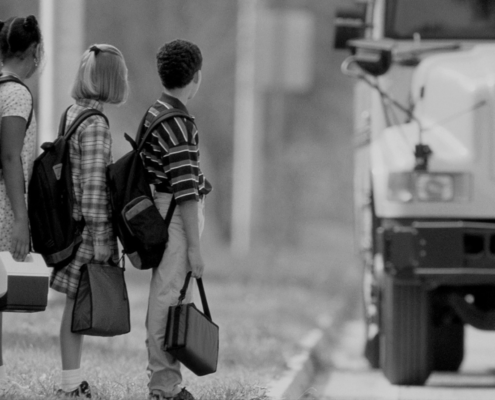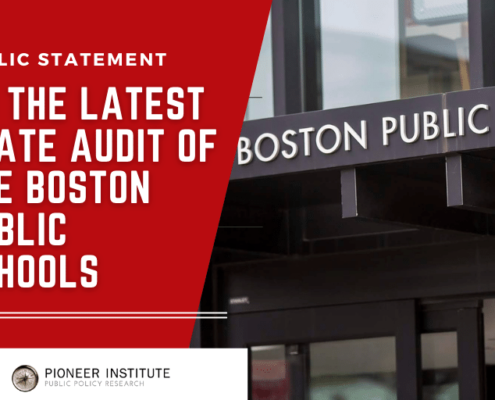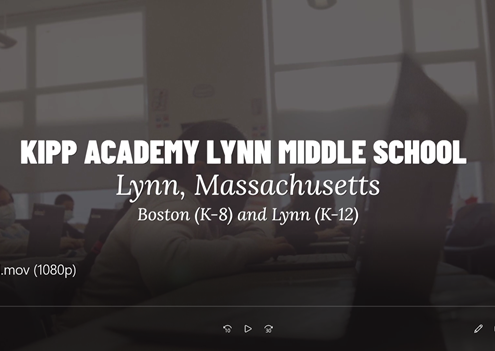
MBTAAnalysis: A look inside the MBTA
0 Comments
/
The MBTA shuttles over a million passengers a day around Greater…
 https://pioneerinstitute.org/wp-content/uploads/CloseupClock-1.jpg
739
1244
Mary Connaughton
https://pioneerinstitute.org/wp-content/uploads/logo_440x96.png
Mary Connaughton2017-02-20 12:34:192017-02-21 09:47:58The Clock is Ticking…….
https://pioneerinstitute.org/wp-content/uploads/CloseupClock-1.jpg
739
1244
Mary Connaughton
https://pioneerinstitute.org/wp-content/uploads/logo_440x96.png
Mary Connaughton2017-02-20 12:34:192017-02-21 09:47:58The Clock is Ticking…….
Examining the Academic Achievement Decline in New England Prior to COVID-19
COVID-19 was not the beginning of student performance declines in the United States. Academic achievement for students across the country began to drop-off following the widespread implementation of the Common Core curriculum in 2013. While declines have occurred across the country, New England has experienced a particularly sharp decrease in student achievement.

Columbia’s Prof. Roosevelt Montás on the Great Books & a Liberal Arts Education
Professor Roosevelt Montás, Director of the Freedom and Citizenship Program at Columbia University, and author of Rescuing Socrates: How the Great Books Changed My Life and Why They Matter for a New Generation, shares his immigrant story and what inspired his appreciation for the Great Books tradition.

UK’s Prof. Michael Slater on Charles Dickens, Ebenezer Scrooge, and A Christmas Carol
This week on “The Learning Curve," co-host Gerard Robinson and guest co-host Mary Connaughton talk with Prof. Michael Slater, Emeritus Professor of Victorian Literature at Birkbeck College, University of London, and the world's foremost expert on Charles Dickens and his works. They discuss some of the main elements of Dickens’ brilliant, prolific, and complicated life, as the 19th century’s most influential, best-selling writer of memorable works, from Oliver Twist to Great Expectations.

Poll Finds Strong Majority of Massachusetts Residents Support Restoring U.S. History MCAS Graduation Requirement
Sixty-two percent of Massachusetts residents support restoring passage of a U.S. history test as a public high school graduation requirement, according to a poll of Massachusetts residents’ attitudes toward education policy commissioned by Pioneer Institute and conducted by the Emerson College Polling Center.

UK’s Miranda Seymour on Mary Shelley and Frankenstein for Halloween
This week on a Halloween edition of “The Learning Curve," guest host Mary Z. Connaughton talks with Miranda Seymour, novelist and definitive biographer of Mary Shelley, author of the classic Gothic novel, Frankenstein.

UCLA’s Dr. Maryanne Wolf on Reading, Brain Science, & the Digital Age
This week on “The Learning Curve," Cara Candal and Gerard Robinson talk with Dr. Maryanne Wolf, Director of the Center for Dyslexia and Diverse Learners at the UCLA Graduate School of Education and Information Studies, and the author of Reader, Come Home: The Reading Brain in a Digital World.

Independent Institute’s Dr. Bill Evers & Ze’ev Wurman on K-12 STEM Education & California’s Woke Math
This week on “The Learning Curve," Cara Candal and Gerard Robinson talk with Dr. Bill Evers and Ze'ev Wurman, of the Independent Institute, about the challenges of ensuring all students have access to quality K-12 math and science education in California and across the U.S.

UVA’s Prof. Angel Adams Parham on Classical Education, Black Intellectuals, & Homeschooling
This week on “The Learning Curve," co-hosts Cara Candal and Gerard Robinson talk with Angel Adams Parham, Associate Professor of Sociology and senior fellow at the Institute for Advanced Studies in Culture (IASC) at the University of Virginia, and the author of The Black Intellectual Tradition: Reading Freedom in Classical Literature. Professor Parham shares her background as an academic and former homeschooling mom, her embrace of classical education, and her philosophy about what constitutes a sound humanities curriculum.

School-Age Population Remains Steady, but Boston Struggles With Declining Enrollment
Hopefully, new leadership will ensure that the system makes the changes necessary to improve public education in Boston. Otherwise, enrollment declines will continue.

AEI’s Robert Pondiscio on E.D. Hirsch, Civic Education, & Charter Public Schools
This week on “The Learning Curve," Gerard Robinson and guest co-host Kerry McDonald talk with Robert Pondiscio, a senior fellow at the American Enterprise Institute. He shares his background working with curriculum expert E.D. Hirsch, Jr., who has emphasized the importance of academic content knowledge in K-12 education as well as civic education to develop active participants in our democracy. Pondiscio explains some of the findings of his book, How the Other Half Learns, on New York’s Success Academy charter schools network.

Hoover at Stanford’s Dr. Macke Raymond on the Current State of K-12 Education Reform
This week on “The Learning Curve," co-hosts Cara Candal and Gerard Robinson talk with Dr. Margaret “Macke” Raymond, founder and director of the Center for Research on Education Outcomes (CREDO) at Stanford University. She shares some of the major highlights from Hoover’s recent Education Summit that featured a wide variety of national and international experts.

David Ferreira & Chris Sinacola on MA’s Nation-Leading Voc-Tech Schools
This week on “The Learning Curve," co-hosts Cara Candal and Gerard Robinson talk with Chris Sinacola and David Ferreira, co-editors of Pioneer’s new book, Hands-On Achievement: Massachusetts’s National Model Vocational-Technical Schools. They share information from their new book on the story of the Bay State’s nation-leading voc-tech schools, and how accountability tools from the state’s 1993 education reform law propelled their success.

Book Finds Massachusetts Voc-Tech Schools Are National Model, Calls for Expansion
Massachusetts vocational-technical schools -- boasting minuscule dropout rates, strong academic performance, and graduates prepared for careers or higher education -- should be expanded to meet growing demand, according to a new book published by Pioneer Institute.

Smith College Prof. Paula Giddings on Ida B. Wells and Her Anti-Lynching Crusade
This week on “The Learning Curve," Cara Candal and guest co-host Derrell Bradford talk with Prof. Paula Giddings, Elizabeth A. Woodson Professor Emerita of Africana Studies at Smith College, and author of A Sword Among Lions: Ida B. Wells and the Campaign Against Lynching.

Pioneer Institute Statement on the Latest State Audit of the Boston Public Schools
The third review of the Boston Public Schools (BPS) in fewer than 20 years makes clear: Things are getting worse. Graduation rates are down, achievement gaps are up, an unacceptably large percentage of students attend schools ranked in the lowest 10 percent statewide. In a cruel twist, more than three in five students still are not taught material on which they are tested. There remains no clear strategy for improvement.

Columbia’s Prof. Nicholas Lemann on the Great Migration, the SAT, & Meritocracy
This week on “The Learning Curve," guest co-host Kerry McDonald talks with Nicholas Lemann, Joseph Pulitzer II and Edith Pulitzer Moore Professor of Journalism and Dean Emeritus of the Columbia School of Journalism, and author of the books, The Promised Land: The Great Black Migration and How It Changed America, and The Big Test: The Secret History of the American Meritocracy.

Open Letter to Mayor Michelle Wu on the Boston Public Schools
“Barely half of students (53 percent) graduate from BPS high schools, excluding the exam schools,” Pioneer Institute Executive Director Jim Stergios underscores at the start of this Open Letter to Boston Mayor Michelle Wu. That’s just one in a long litany of troubles within the Boston Public Schools, much of which is due to chaotic management and at times even willful misleading of the public. In this letter, Pioneer recommends fresh thinking, and, specifically, a highly focused and time-limited intervention, in partnership with the state department of education.

Hoover at Stanford’s Dr. Eric Hanushek on NAEP, PISA, International Comparisons in Education
This week on “The Learning Curve," co-hosts Cara Candal and Gerard Robinson talk with Dr. Eric Hanushek, the Paul and Jean Hanna Senior Fellow at the Hoover Institution of Stanford University. Dr. Hanushek shares how he first became interested in the economics of education, his plans for the nearly $4 million in funding from the prestigious Yidan Prize, which he received in 2021, and where he sees the greatest need for additional research in education.

Harvard Mathematician Prof. Wilfried Schmid on K-12 Standards & Results
This week on “The Learning Curve," co-hosts Cara Candal and Gerard Robinson talk with Dr. Wilfried Schmid, Dwight Parker Robinson Emeritus Professor of Mathematics at Harvard University, who played a major role in drafting the 2000 Massachusetts Mathematics Curriculum Framework and served on the U.S. National Mathematics Advisory Panel (NMAP) in 2008.

Accelerating Learning at KIPP
KIPP Academy Charter School is working hard to ensure that all students have access to high-quality instruction, especially as children everywhere struggle with post-COVID learning recovery. In this video, KIPP Academy Executive Director Nikki Barnes and KIPP Academy Lynn Middle School Principal Jimmy Seter allowed us into their in-depth discussion of the principles, objectives and strategies they use to foster an environment of encouragement, informed guidance, learning growth, and equity.

Emory Uni. Prof. Mark Bauerlein on “The Dumbest Generation” & the Digital Age
This week on “The Learning Curve," co-host Cara Candal and guest co-host Prof. Robert Maranto talk with Dr. Mark Bauerlein, Senior Editor at First Things, Professor of English Emeritus at Emory University, and the author of The Dumbest Generation Grows Up. Dr. Bauerlein shares his views about the kinds of content American K-12 students should be reading for preparation for college and meaningful lives.

Virtual Learning Grows During COVID
Virtual learning in K-12 education continues to grow due to the health threat caused by coronavirus variants and the assistance this learning model can provide to at-risk students, according to two papers released today by Pioneer Institute.

Journalist Bari Weiss on Fighting Anti-Semitism & the Cancel Culture
This week on “The Learning Curve," co-hosts Gerard Robinson and Cara Candal talk with Bari Weiss, former New York Times op-ed editor and writer, and author of How to Fight Anti-Semitism. Bari shares what motivated her to write this book, its reception, and key lessons for teachers and students alike. She also explains why we’re now seeing a rise in anti-Semitism, how educators can best combat it, and the connection she observes between the current upsurge in anti-Semitism and cancel culture.

Author Nicholas Basbanes on Henry Wadsworth Longfellow & the Spirit of American Poetry
This week on “The Learning Curve," co-hosts Gerard Robinson and Cara Candal talk with Nicholas Basbanes, author of the 2020 literary biography, Cross of Snow: A Life of Henry Wadsworth Longfellow. He shares why poetry - from the Epic of Gilgamesh and Homer to Dante, Shakespeare, Longfellow, Emily Dickinson, and Langston Hughes - may well be the most influential, enduring form of written human expression.

Chan Zuckerberg Initiative’s Dr. Bror Saxberg on Learning Science & School Reform
This week on “The Learning Curve,” co-hosts Gerard Robinson and Cara Candal talk with Dr. Bror Saxberg, MD, Vice President of Learning Science at the Chan Zuckerberg Initiative. Dr. Saxberg describes his groundbreaking work in the area of learning science and understanding how “working memory” and “long-term memory” can help improve academic excellence and equity.

Award-Winner Prof. David Reynolds on Abraham Lincoln & American Civil War Culture
This week on “The Learning Curve," co-hosts Gerard Robinson and Cara Candal talk with David Reynolds, a Distinguished Professor of English and History at the Graduate Center of the City University of New York. He is the author of Abe: Abraham Lincoln in His Times, selected as one of the Top Ten Books of the Year by The Wall Street Journal and The Washington Post. Professor Reynolds shares what teachers and students alike should know about the culture of Civil War America, primary education in that era, and the wide variety of influences on Lincoln’s thinking and leadership.

CRPE’s Robin Lake on COVID School Closures & Learning Loss
This week on “The Learning Curve," co-hosts Gerard Robinson and Cara Candal talk with Robin Lake, director of the Center on Reinventing Public Education (CRPE), a non-partisan research and policy analysis organization developing transformative, evidence-based solutions for K-12 public education.

UChicago’s Dr. Leon Kass on Genesis, Exodus, & Reading Great Books
This week on “The Learning Curve," guest co-host Jason Bedrick and co-host Gerard Robinson talk with Dr. Leon Kass, MD, the Addie Clark Harding Professor Emeritus in the Committee on Social Thought and the College at the University of Chicago. Dr. Kass describes the important pieces of wisdom and humanity people today can still learn from reading the Book of Genesis, the topic of his 2003 work, The Beginning of Wisdom.

Valhalla Foundation’s Nancy Poon Lue on STEM Access & Equity
This week on “The Learning Curve," host Gerard Robinson talks with Nancy Poon Lue, incoming Senior Director at the Valhalla Foundation, where she will be leading their K-12 math funding initiatives. Nancy shares her recent work with the EF+Math Program, some of the challenges America has faced in ensuring students have a strong grounding in math and science, and the kinds of results she aims to achieve for kids in all ZIP codes.

Yale’s Pulitzer-Winning Prof. David Blight on Frederick Douglass, Slavery, & Emancipation
This week on “The Learning Curve," Cara Candal and guest co-host Derrell Bradford talk with David Blight, Sterling Professor of American History and director of the Gilder Lehrman Center for the Study of Slavery, Resistance, and Abolition at Yale University. He is the author of the Pulitzer Prize-winning biography, Frederick Douglass: Prophet of Freedom.
